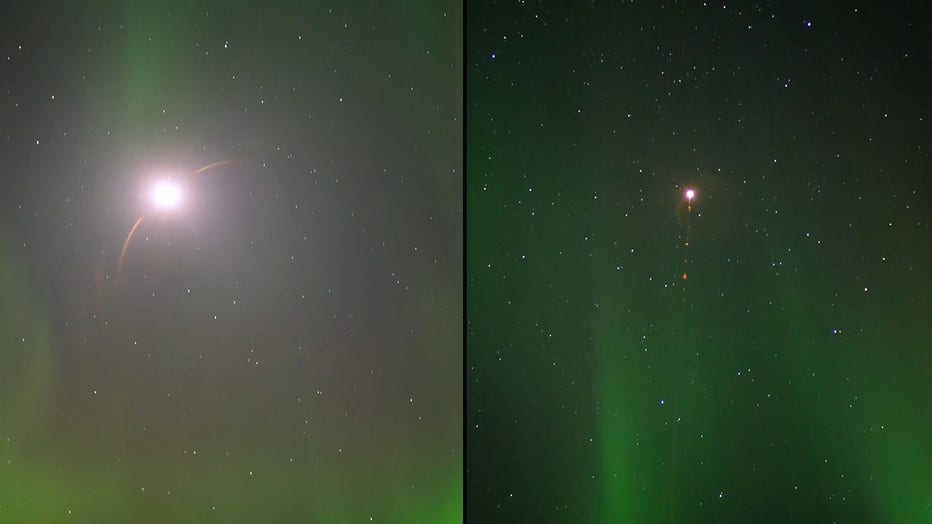NASA rocket launches into Alaskan northern lights

Rocket launches amid beautiful Alaskan aurora
A rocket launched by NASA had a spectacular backdrop on November 8 as it was launched into a night sky filled by aurora. Credit: Vincent Ledvina via Storyful
A recent NASA rocket launch had quite the idyllic background.
A sounding rocket launched in Fairbanks, Alaska, on Nov. 8, 2023, launched into a night sky beautifully filled by a bright green dancing aurora.
Footage recorded by PhD student and aurora enthusiast Vincent Ledvina captured the bright flash and glow of the rocket launch.
The voices of several people can be heard expressing their awe as the rocket disappeared into the clear, starry sky.
"Wow, beautiful," one says.
"That’s so cool!" another exclaims.

A NASA sounding rocket disappearing into space after launch on Nov. 8, 2023. Credit: Vincent Ledvina via Storyful
RELATED: NASA's ad-free, no-cost streaming service has launched - what to know
The launch into the lights wasn’t just by happenstance, either. While it put on a spectacular show, the rocket’s purpose was to capture more information about the weather behind the elusive lights.
According to NASA, the sounding rocket’s experiment successfully captured data "to understand how auroras heat the atmosphere and cause high-altitude winds."
Sounding rockets carry scientific instruments into space along a parabolic trajectory, according to NASA, and only spend about 5-20 minutes in space.
"It was an exciting but nerve-racking experience," Mehdi Benna told the Geophysical Institute of the University of Alaska Fairbanks. "The countdown had to be precisely timed to target the peak of the auroral activities, which lasted less than 30 minutes from its growth to recovery phase."
Benna is an aeronomist and planetary scientist at the University of Maryland and NASA’s Goddard Space Flight Center, and is the experiment’s principal investigator.
The experiment will help scientists better understand the winds in Earth’s upper atmosphere near the edge of space, which have an effect on space weather.
RELATED: Solar superstorm could 'wipe out the internet' for weeks or months, scientist says
Improved space weather forecasting has become increasingly important to operators of satellites, communication and navigation systems, and power grids, all of which can be damaged or disrupted by space weather, the Geophysical Institute further reported.
This story was reported from Detroit.

